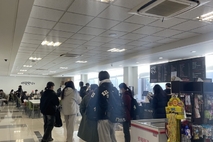
The student cafeteria is one of the places that college students often use. It is a place where students who are not economically rich can eat decent meals at low prices, and many students visit. Currently, Keimyung University also operates in Old Bauer Hall, New Bauer Hall, Aram Hall, and Welfare Center. Most of them are operated for a long time from 8 a.m. to 9 p.m., so they can solve breakfast, lunch, and dinner. However, as prices have increased in most schools, including Keimyung University, the price of student cafeteria has also increased, causing resentment among university students. A

What first comes to your mind when you think of South Korea? Many Gen-Zs would respond with Korean Idol groups or celebrities due to their connection with K-music, K-dramas, and K-movies. Alongside the rise in popularity of K-pop and K-dramas, many individuals have become extremely interested in Korean food recently. Kimchi, for example, has been a trending food in media across nations. Have you ever tried a delicious side dish called kimchi? Kimchi can be a main dish or a side dish. or even a condiment in Korean cuisine. Kimchi is a traditional ‘banchan,’ meaning side dish in Korean, which i

Everyone has different ways of spending the end of the year and the beginning of the new year. Furthermore, the atmosphere in which the year-end and the beginning of the new year are spent varies from country to country. In Korea, at the end of the year, certain groups such as family, friends, clubs, or companies hold gatherings or year-end parties to look back on the year. On December 31 in Korea, Korean people listen to the Watch-Night bell. On January 1, people welcome the new year by eating rice cake soup, which symbolizes turning one year older. Families or friends may make a wish while w